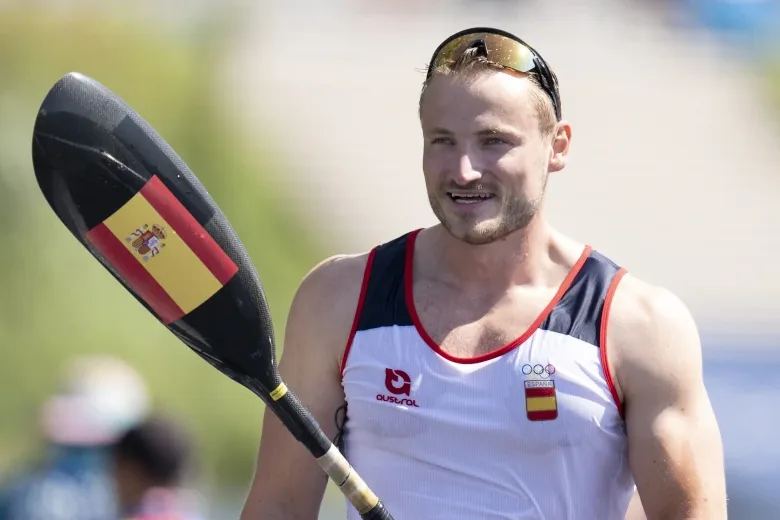
Marcus Cooper, in training during the Paris Olympics. Photo: RFEP.
The triple Olympic medallist proposes to facilitate the professional future of sportsmen and women in the State Security Forces and Corps
In a world where elite sport is often associated with glamour and success, canoeist Marcus Cooper (Oxford, 1996), a felanitxer by adoption, puts into perspective the challenges of athletes competing in less mediatic disciplines and highlights the importance of mental health.
– What is more relevant, a healthy mind or a healthy body?
– The three pillars that have made me successful have been nutrition, psychology and, obviously, physical exercise. They are all important, but if I had to choose one, it would be the mental part, which is the first one to take care of. Everything starts in the head: control of emotions, our attitude, decision making. And that is Plan Cooper, an online health platform that offers nutritional, psychological and physical exercise solutions. It is for any person and any objective, not only focused on sport and much less on elite sport.
– Is it important to lose the so-called fear of winning?
– No doubt about it. It’s an idea that my first coach passed on to me and it had a big impact on me. We focus on learning to deal with defeat, but we also have to know how to manage success. Human beings tend to seek balance, and when things go well, we self-sabotage: “I’m very good at this, but, but, but…” It is important to believe in oneself and learn to accept that we can progress and grow in all areas of life.
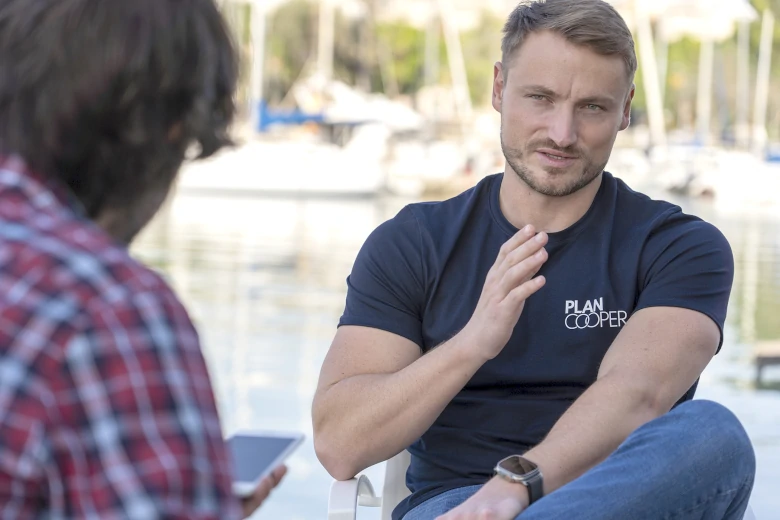
Cooper, during the interview with Mallorca Global Mag. Photo: Piter Castillo.
– Do we live in a society that is too focused on the negative?
– We normalise the good too much; we don’t value it. And that also happens in sport. When I achieve a success after so much effort, I don’t value it; I move on to the next level. More and more, I am doing the work of valuing my achievements, what I have accomplished, because almost always, we focus too much on the bad.
– In Olympic sports, the pressure to achieve results in order to receive scholarships and grants must be enormous.
– It requires significant mental management. This uncertainty is an extra annoyance that we sportsmen and women have in our heads. We make many sacrifices without having any guarantee of achieving a result that compensates for not having been able to study for a degree or not having prepared ourselves in another field of work. The economic support is not very strong, so until you get to the top, you don’t start to receive an income that really makes you think: “Yes, it’s worth staying here and not just opting for another job with an average salary.” We need more support.
– Do sportsmen and women think about life beyond the track?
– We tend to be short-sighted and focus on the next competition. But it’s true that when you start to think about the future, you get nervous and uncertain. You ask yourself, to what extent am I ready to do something else? When I quit, what do I have? But it’s not only thinking about retirement because you can also get injured or drop your performance for whatever reason. It’s very stressful.
– How could your future be clarified after retirement?
– I have always thought that sport should be a state affair, more so than it is at present. One option would be to provide professional opportunities for sportsmen and women who have made these sacrifices for the image of Spain. In other countries, there are agreements with the State Security Forces to join the police, the fire brigade, the army… After all, we share many values with them, and having this option would be very positive.
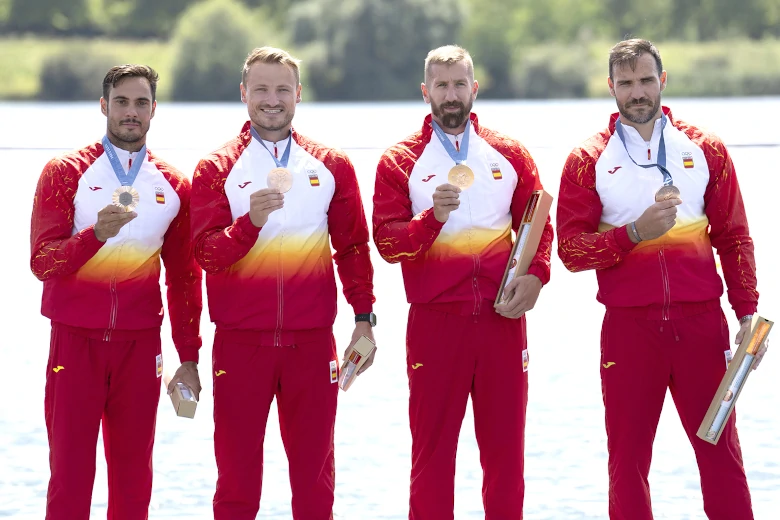
Marcus Cooper (second from left) and the rest of the K4 500 team (Rodrigo Germade, Carlos Arévalo and Saúl Craviotto) show the bronze medal obtained in Paris. Photo: RFEP.
– Is Plan Cooper a project to carve out a future for yourself after canoeing?
– Not really. Obviously, I hope that this is the case because if I continue with Plan Cooper in the future, it means that I have done well. But it comes from my desire to help and share my knowledge, always surrounded by the great professionals who have stood by me. Because there is no such thing as an individual sport; when you cross the finish line or step onto the podium, you do so with the team that has helped you. And that is the essence of Plan Cooper.
– What is the greatest demand?
– Fat weight loss, no doubt about it.
– Have you ever considered quitting?
– No, it has always been clear to me to move forward. In 2015, before winning gold at Rio 2016, I ended the year a bit unhappy with myself, with my results. So I played a mental game: either I gave up canoeing or I really tried to be my best throughout the season. I was going to take the second option, but it helped me to consider the first one.
– How much longer will we be able to enjoy Marcus Cooper?
– Although I’m going pretty much year by year, Olympic cycle by Olympic cycle, I haven’t thought about retiring. Because of my age, I could be in at least two more Olympic Games; it would be difficult to be in three, but I will be in Los Angeles and Brisbane. I live in the present, so maybe next month I’ll decide to quit (laughs).
– Have the English ever proposed to compete with them?
– Not really, they haven’t even hinted at it. Even for that, they are stiff and proud, very much their own (laughs). When I started to stand out, I decided to become Spanish. It took me almost five years, and I almost didn’t make it to Rio 2016. Imagine, if I hadn’t managed to compete… If the English had asked me something like that, with all due respect, I wouldn’t have accepted. I owe my results to Spain, and I feel Spanish.


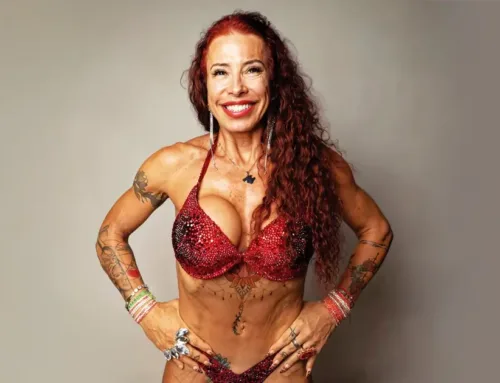

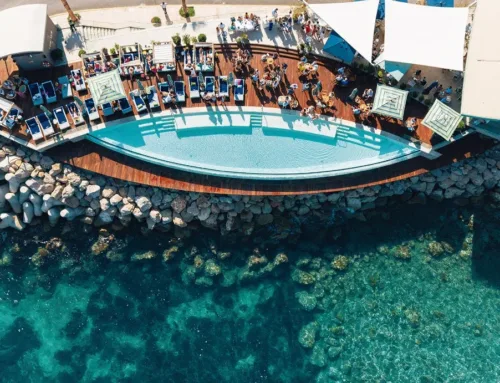
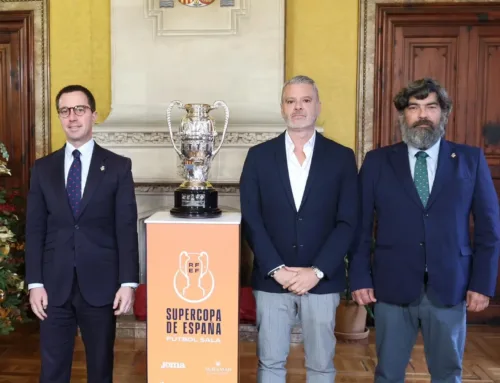
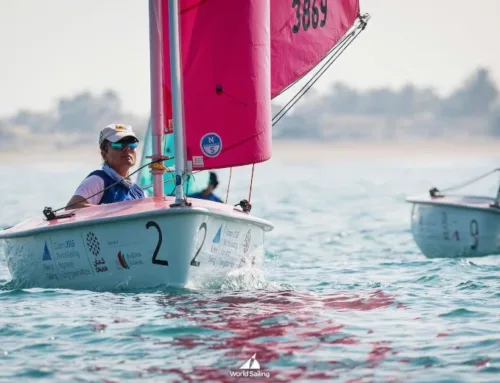

Leave A Comment